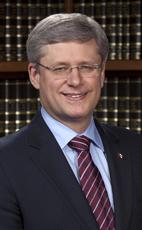My colleague says it is a Liberal consensus.
The three Reform motions in Group No. 3 deal with the proposals we put forward which I will not say were unanimously accepted in discussion. That is not the case. They were not rejected and seemed to be of interest to all parties in the committee during our discussion on this particular issue.
Our proposals were to stagger the hours beginning by moving the hours of voting back a half hour in each time zone east of British Columbia, delaying the count a further half hour for each time zone and eliminating the blackout entirely in the case of Atlantic Canada as a way of making up anything over and above the three hour difference between British Columbia and Quebec. Those are the proposals we have here. They are divided into three motions.
Motion No. 21 relates to the actual closing hours we propose which would be 8 p.m. in British Columbia; 8.30 p.m. in Alberta; 9 p.m. in Manitoba and Saskatchewan; 9.30 p.m. in Ontario and Quebec; and 9.30 p.m. as well in Atlantic Canada. Motion No. 23 would delay the vote count. That would be an additional half hour for each time zone, a delay of a half hour in Alberta, an hour in Manitoba, and an hour and a half in central Canada. Motion No. 25 proposes to limit the blackout.
Our preference would have been with staggered voting hours to completely eliminate the blackout for Atlantic Canada because frankly we could not see that this really would be an issue to anybody in the west or even in central Canada. The fact that there might be some preliminary results available from Newfoundland and the maritimes did not seem to be an issue. Therefore we were going to propose eliminating it entirely.
The only reason our amendment does not do that is that we were concerned with the limits we had in our technical drafting, that we were not able to capture some of the effects on advanced polls and special ballots. We were concerned that some of those results might circulate even before the counting had begun in some parts of the country. That is why we only limited the blackout as opposed to eliminating it but the concept is still the same.
I will be speaking at much greater length on this when we reach full debate, but I urge the government to reconsider this. The whole rationale that many in the government have given for this is that somehow it would deal with grievances in western Canada, to deal with the fact that westerners presumably know the results or that governments are elected before the polls have even closed in the west. That was stated to be one of the concerns here.
The effect of what the government is proposing is to do that by limiting the ability of western Canadians to vote. Closing the polls in British Columbia at 7 p.m. has a major impact upon prime voting hours in that province. This is terribly problematic and it is not necessary. I am very suspicious about the proposal to close the polls early in Alberta. This is not necessary in any form to deal with this problem. I am very surprised that the government threw that in. It was another anomaly in its solution.
The final anomaly I will mention is that this provision is actually allowing the count to begin in Ontario a half hour earlier than when the polls close in B.C. While technically feasible, this was in fact rejected by the member from Vancouver East who proposed the bill in the first place.
There are all kinds of anomalies in this solution, things that did not reflect the committee discussions.
The Liberals are trying to make amends by their Motions Nos. 5 and 20, both of which we will oppose. Motions Nos. 5 and 20 essentially propose to extend voting hours across the country from 11 hours to 12 hours. I would presume that is one way of giving people more time and more ability to vote.
Allowing British Columbians to vote at 7 a.m. before they have had breakfast or presumably on their way to work is not compensation for not being able to vote at a convenient time of the day. In fact it is more costly to keep the polls open longer. Elections Canada testified to that effect. I do not think adding the extra hour buys us anything or deals with the fundamental problems created by the government's proposal on this. We will be voting against those two motions because we do not feel they fix the problem and it is costly.
I have just a very brief comment on Motion No. 22 proposed by the Bloc Quebecois. I must admit that we have had some discussion and some uncertainty as to how we should deal with this. The Bloc has proposed to reverse a proposal in the bill that requires
employers to give only three hours to vote instead of four hours. The motion would put it back to four hours.
We will be opposing this motion. We are torn because we think it should be three hours. Four hours is too long and too much of an imposition on employers. I would point out that with the hours as they are in British Columbia, having only three hours is going to cause a fairly serious problem in terms of logistics for people trying to vote and also getting time off work from their employer, particularly if they travel some distance from work to home, which is often the case in Vancouver and some parts of rural B.C.

